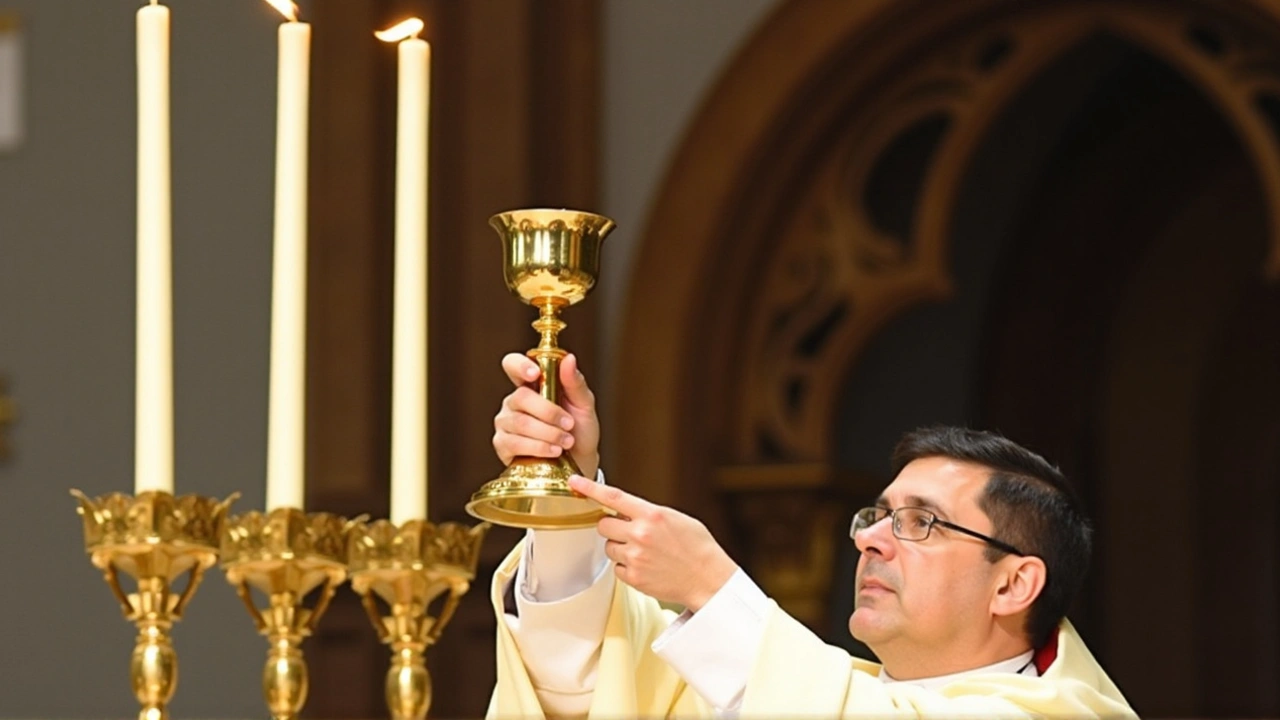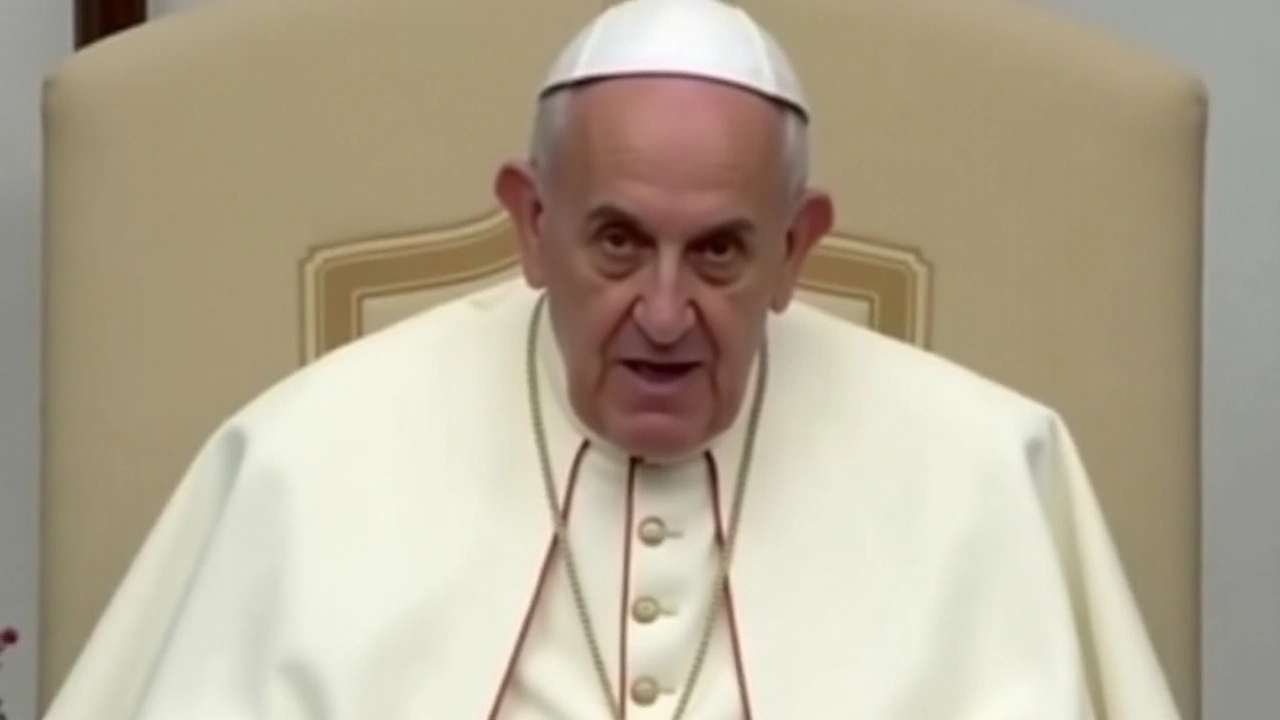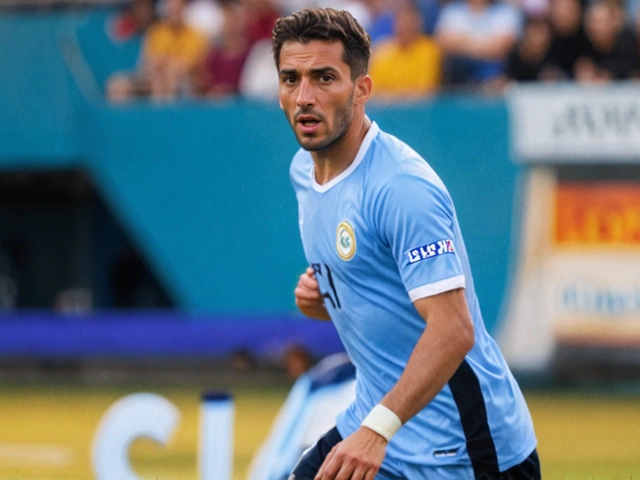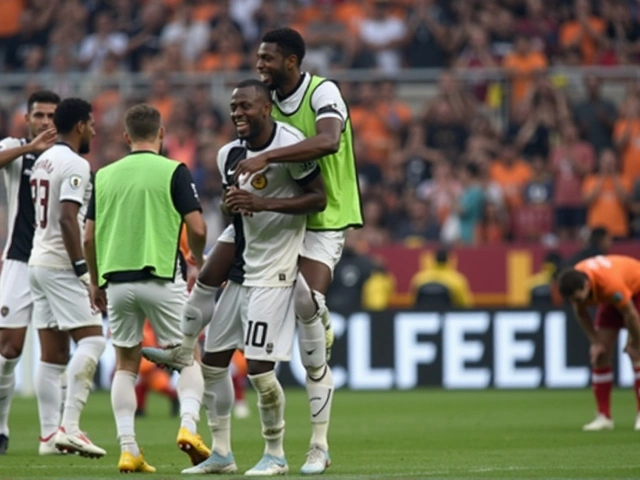Pope Francis Voices Criticism on Israel-Hamas Conflict
Pope Francis recently expressed his strong disapproval regarding the international community's inability to end the longstanding and devastating Israel-Hamas conflict. Speaking on a significant date— the anniversary of a particularly lethal attack by Hamas on Israel— Francis didn't mince his words. He labeled the global community's attempts, or lack thereof, as 'shameful inaction.' The Pope highlighted the lack of effective measures taken by powerful nations to mediate and cease the violence, sharing sentiments that echo a global outcry for peace and stability.
The Unyielding Cycle of Violence
The Middle East, a region often associated with rich historical and cultural dynamics, continues to be overshadowed by the ongoing strife between Israel and Hamas. What was once hoped to be an era of enlightenment and cultural exchange has been clouded by the enduring shadows of conflict. Since the explosive attack unleashed by Hamas, which marked another grim chapter in their legacy of aggression against Israel, both sides have been entrenched in a cycle of repeated violence and retaliation.
The toll has been immense, both in terms of human life and humanitarian devastation. Thousands have perished as collateral in a battle that seems to possess no visible end. Families, communities, and entire regions have found themselves ensnared within a perpetual state of fear and uncertainty. It's within this context that Pope Francis's call for a concentrated and unified effort for peace resonates so deeply.
Pope's Call for Renewed Commitment
At the heart of the Pope's candid address lies a powerful plea for renewed diplomatic efforts. Francis outlined his vision for addressing deeply rooted causes of the conflict, driving a narrative both hopeful yet urgent in its undertone. His urgent appeal isn't only directed toward those directly involved in the conflict but also toward the international mediators whose responsibility, by nature of their power and influence, is to forge a path toward peace.
The Papal message isn't just a simple request but a demand from a leader who recognizes the gravity of this war's far-reaching implications. By urging the global powers to not only vocalize intentions but also embed concrete actions, Pope Francis underscores a sobering reminder: that time is of the essence, and the cost of inaction is measured in human lives that could otherwise be spared.
Global Responsibility and the Path Forward
There is a stark dichotomy in the world's current situation: immense technological advancements and increased awareness contrast sharply with the age-old turmoil rooted in territorial and ideological disputes. As international leaders grapple with the magnitude of the Middle Eastern conflict, there remains an urgent necessity to act decisively and compassionately.
The Pope's appeal serves as a poignant reminder of this responsibility, advocating for concrete steps to dismantle the pillars of this enduring conflict. Addressing the heart of these issues means navigating delicate political landscapes, bridging gaps between diverging narratives, and confronting truths that may be uncomfortable yet are necessary for true healing.
Lessons from the Past
As time unfolds, the tragic stories of those caught in the crossfire continue to resonate globally, begging for a resolution that, despite textually sought across decades, remains elusive. Pope Francis's appeal beckons reflections on the lessons humanity must learn from its past failings, emphasizing the need for tenacity and hope in pursuit of peace.
In discovering these lessons and acting upon them, the future holds a possibility—a chance to break from the cyclical bindings of violence and to usher in a new dawn for those who have known nothing but strife. Through these hopes, the Pope seeks to energize global leaders into sparking a change that can alter the course of history for generations to come.

Conclusion
Pope Francis's discourse delivers a clarion call for a dynamic shift in how the international community approaches the Israel-Hamas conflict. It advocates for urgent, meaningful dialogue and an unwavering commitment to peace as not merely an ideal but an achievable state. His words, laced with compassion and urgency, challenge the powers at be to transform their rhetoric into tangible action, directly contributing to human welfare and global stability.
Whether the world heeds this urgent appeal remains to be seen, yet what is clear is the Pope's unwavering belief in humanity's collective capacity to rise above its longstanding challenges and forge pathways to peace.






ARPITA DAS
October 8, 2024 AT 00:41It is utterly galling to witness the orchestrated complacency of the so‑called global guardians, whose silent corridors teem with clandestine agendas that perpetuate the Gaza inferno.
One cannot help but suspect that a shadowy federation of powerbrokers is deliberately stalling any genuine peace effort, feeding off the spectacle of endless bloodshed.
Their polished press releases mask a deeper, almost theatrical, love for chaos that benefits their own geopolitical chessboard.
Even the Pope’s earnest pleas are reduced to footnotes in a narrative written by those who profit from perpetual conflict.
Such shameless inaction betrays a goverment that has forgotten the very essence of humanity.
Sung Ho Paik
October 8, 2024 AT 01:50Wow, what a powerful reminder that even the highest voices can cut through the noise! 🌟
We all have a role to play in turning these words into real action- think of it as a collective meditation for peace.
Let’s channel that moral courage into concrete steps: supporting humanitarian aid, lobbying our representatives, and refusing to be silent.
Remember, every small effort adds up, and together we can rewrite the story from tragedy to hope.
Keep the momentum alive, and let the Pope’s message echo in every corner of our daily lives! 😊
Sanjay Kumar
October 8, 2024 AT 03:13the media keeps blowing this up its just another propaganda cycle the real issue is power games and nobody cares enough to stop the bloodshed this is why we keep seeing the same old story again and again
Veena Baliga
October 8, 2024 AT 04:20The perpetuation of violence in the Holy Land cannot be excused by any diplomatic niceties; it is a direct affront to the principles of sovereignty that our nation upholds.
We must unequivocally condemn the aggression and demand that international bodies enforce a cease‑fire that respects the rightful security of all peoples involved.
It is incumbent upon allied governments to leverage their influence, not merely offer rhetorical support, to bring about a tangible resolution.
vishal Hoc
October 8, 2024 AT 05:26I agree with the call for peace and think we should all support any effort that brings both sides together.
Helping with humanitarian aid and opening channels for dialogue are practical steps we can all back.
Let’s stay calm and keep working toward a solution that respects everyone’s safety.
vicky fachrudin
October 8, 2024 AT 07:23Historically, the region has been a crucible of cultural exchange, religious pilgrimage, and geopolitical contestation, a fact that often gets lost amidst the daily headlines of violence.
From the era of the Ottoman millet system, which attempted a delicate balance of communal autonomy, to the British Mandate’s ill‑fated promises, each epoch contributed layers of complexity that modern policymakers rarely appreciate.
The Vatican, through papal diplomacy, has long advocated for a “just peace,” invoking the principles of subsidiarity and the common good, concepts that remain relevant today.
Moreover, the demographic shifts following the 1948 Nakba and the 1967 Six‑Day War introduced new political realities that reshaped both national identities and territorial claims.
Academic analyses, such as those by Edward Said and Albert Hourani, emphasize that narratives of victimhood on both sides fuel a perpetual cycle of mistrust, making external mediation an intricate endeavor.
In practical terms, confidence‑building measures-such as joint economic projects, water‑resource management, and cultural heritage preservation-have demonstrated measurable reductions in local tensions in pilot programs across Jerusalem and the Gaza Strip.
Simultaneously, the role of non‑state actors, including humanitarian NGOs and religious institutions, cannot be overstated; their grassroots initiatives often bypass bureaucratic inertia to deliver immediate relief.
Nevertheless, any sustainable framework must address core grievances: the right of return for displaced persons, the security concerns of Israeli citizens, and the political aspirations of Palestinians seeking self‑determination.
International law, particularly United Nations resolutions and International Court of Justice advisory opinions, provides a legal scaffold that, if respected, could guide negotiations toward a two‑state solution grounded in equity.
Furthermore, the emerging discourse on “shared sovereignty” proposes innovative governance models, such as joint municipal councils for contested cities, which merit serious scholarly exploration.
It is also crucial to recognize the psychological toll of prolonged conflict; trauma‑informed approaches in peacebuilding can foster resilience and break the transmission of hatred across generations.
In this context, Pope Francis’s admonition serves not merely as moral exhortation but as a catalyst for interdisciplinary collaboration among theologians, political scientists, and conflict‑resolution practitioners.
Finally, it is incumbent upon the global community, especially powerful nations, to translate rhetorical support into concrete policy instruments-targeted sanctions, diplomatic incentives, and robust funding for reconstruction-thereby moving from “shameful inaction” to proactive stewardship of peace.
Only through such a comprehensive, multifaceted strategy can the region hope to transcend its tragic past and embark upon a future defined by coexistence and mutual respect.
subhashree mohapatra
October 8, 2024 AT 08:46Clearly the Pope’s words are just empty rhetoric serving no real purpose.